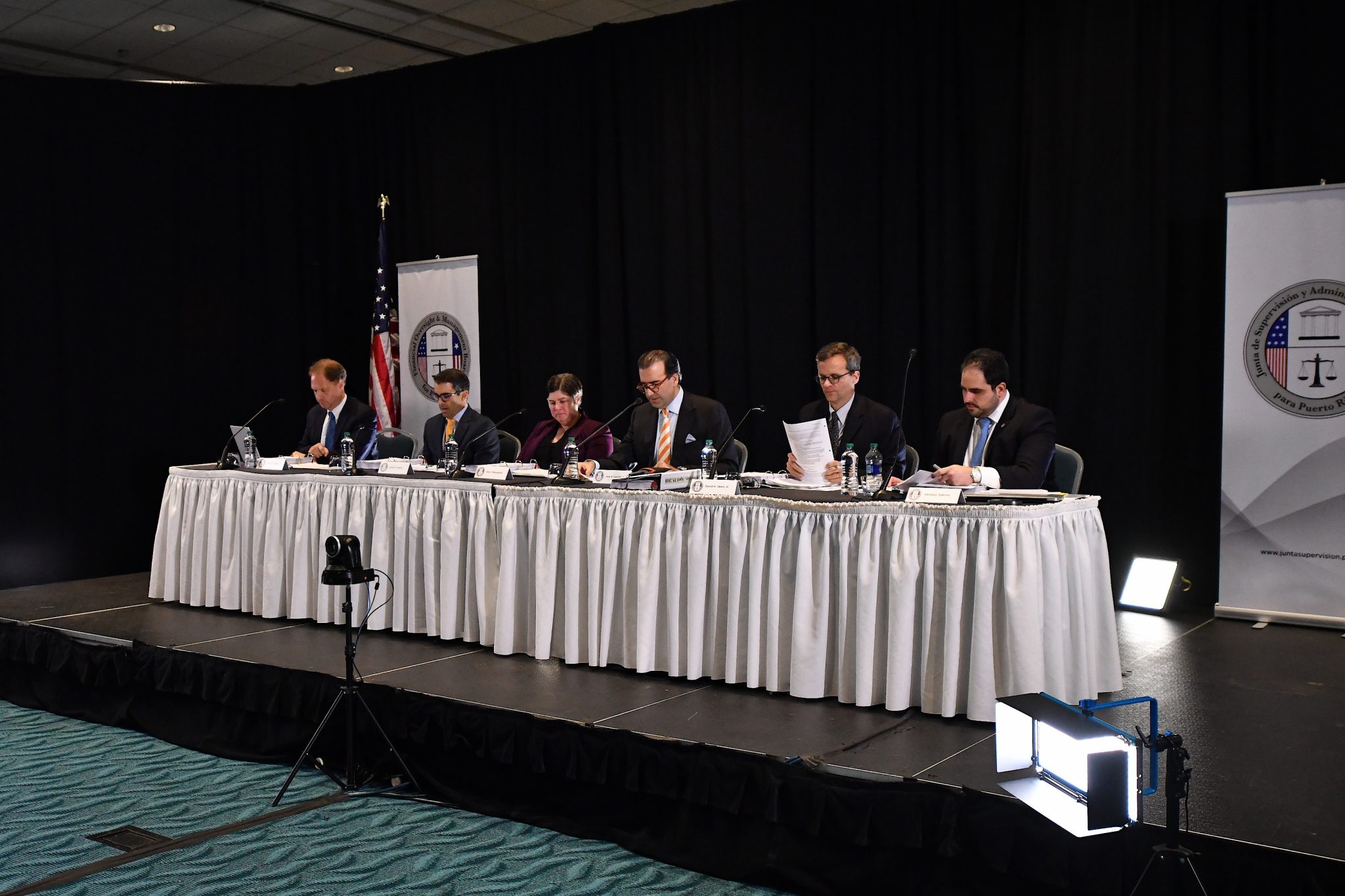

One of the 2018 meetings of the Financial Oversight and Management Board for Puerto Rico (Photo by the Centro de Periodismo Investigativo)
Last Wednesday, Solicitor General of the United States Noel Francisco filed a petition for writ of certiorari, asking a federal appeals court to revoke the decision made in February that ruled the member selection process for Puerto Rico’s Fiscal Control Board unconstitutional.
“If allowed to stand, the court of appeals’ decision would have devastating practical consequences for the ongoing economic recovery in Puerto Rico,” the petition read.
In February, the United States Court of Appeals for the First Circuit ruled that Fiscal Board members were not appointed in compliance with the Appointments Clause, therefore deeming the Board unconstitutional. The clause, part of Article II of the Constitution, states that all officers have to be nominated by the President, with the advice and consent of the Senate before being approved.
The petition argues that the Court of Appeals is wrong to have declared an act of Congress unconstitutional. Because Puerto Rico is a territory of the United States, it asserts that the appointments are fair because the officers in question are territorial officers, not “Officers of the United States, who serve within the departments of national government.”
Continuing that thought, the petition says that because the Board is a territorial entity, board members serve as delegates exercising Congress’s authority over the territories, citing the Supreme Court ruling for Puerto Rico v Shell Co. (1937), which notes that there is no sovereignty in a territory of the United States but that of the United States itself.
The Board was established in 2016 after the Puerto Rico Oversight, Management, and Economic Stability Act, also known as PROMESA, was voted into law by Congress and signed by President Obama to address Puerto Rico’s debt by establishing an oversight board to help restructure the debt.
The Fiscal Board is composed of seven voting members: one is chosen by the President, the other six are selected from a list of candidates provided by congressional leadership. An individual chosen by Governor of Puerto Rico serves as a non-voting member. According to the documents submitted to the court, when the President makes a selection from one of the lists provided, no Senate confirmation is required.
Although Puerto Rico Governor Ricardo Rosselló has yet to comment on the constitutionality of the Fiscal Board, he has publicly disagreed with it on numerous occasions—more recently, over the education budget, with the board proposing almost $150 million less than what Rosselló originally wanted.
Latino Rebels has reached out to Rosselló for comment about the Solicitor General’s petition. As of this posting, it has yet to receive a response.
Since its establishment, the board has faced resistance from the Puerto Rican people who feel that the board denies them the ability to choose how to deal with the financial crisis. Many have also criticized the raises in the board’s budgets while it cuts pensions, health services, and close schools, among other things.
A response for the writ of certiorari is due on July 8. Read the full petition here:
The Solicitor General is often considered the 10th Justice, working between the Department of Justice and the United States Supreme Court. If the writ of certiorari is approved, the case would make its way to the Supreme Court.
(H/T El Nuevo Día)
***
Natalia Rodríguez Medina is the 2019 summer correspondent for Latino Rebels. She is a member the Craig Newmark Graduate School of Journalism at CUNY’s Class of 2019. Natalia tweets from @nataliarodmed.



[…] Rosselló’s promises, albeit with some reluctance. After his election, he quickly confronted the fiscal-management board imposed by the U.S. Congress and Barack Obama’s administration in 2016 and promised to fight it at every turn. Critics accused him of double-dealing, denouncing […]
[…] Rosselló’s promises, albeit with some reluctance. After his election, he quickly confronted the fiscal-management board imposed by the U.S. Congress and Barack Obama’s administration in 2016 and promised to fight it at every turn. Critics accused him of double-dealing, denouncing […]
[…] Rosselló’s promises, albeit with some reluctance. After his election, he quickly confronted the fiscal-management board imposed by the U.S. Congress and Barack Obama’s administration in 2016 and promised to fight it at every turn. Critics accused him of double-dealing, denouncing […]